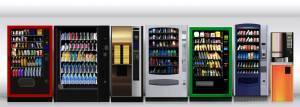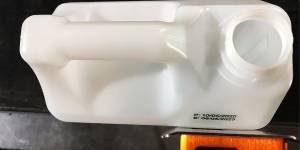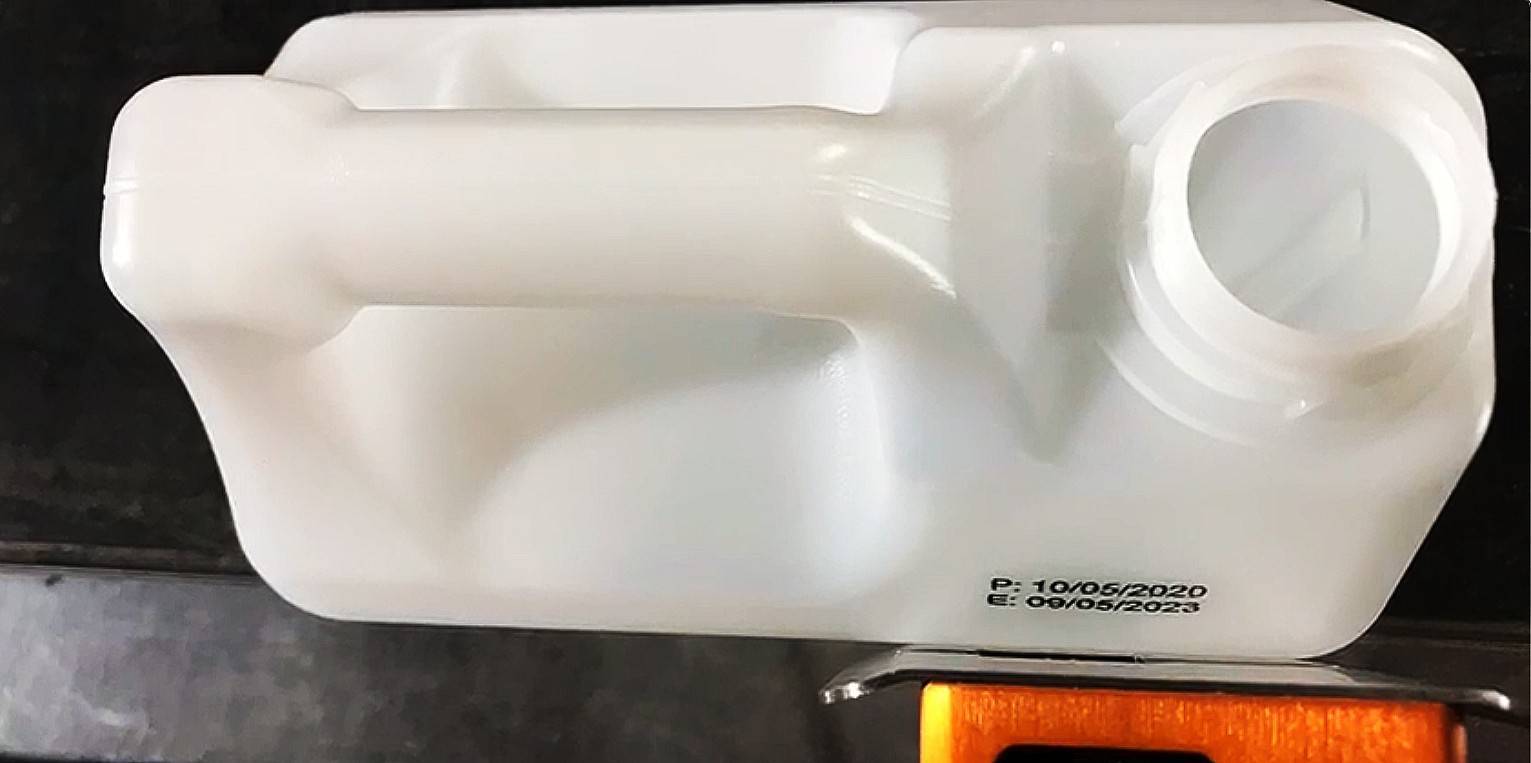
Thermal inkjet (TIJ) technology offers a straightforward, cost-effective solution for industrial printing operations. With a wide range of ink formulations available, TIJ systems can print on various substrates, including plastics, metals, glass, wood, and more.
Put simply, TIJ is a reliable partner and a problem solver.
Why Use TIJ Systems?
TIJ printing equipment delivers sharp, high-resolution prints with minimal maintenance and easy-to-swap printhead cartridges. For your production line, that means less downtime and more consistent results.
“Thermal inkjet technology has proven to be a game-changer for industrial printing. Its ability to deliver high-resolution prints across various substrates while minimizing maintenance downtime makes it an indispensable tool for any production line,” said Kristin Adams, Marketing Manager at Kao Collins.
Whether you need water-based or solvent-based inks, TIJ handles challenging requirements.
In this article, we’ll explore how TIJ inks solvsignificantor industrial printing challenges and why they are the go-to choice for ink buyers looking for reliability and efficiency.
Before diving into the details, let’s quickly look at the leading technologies in TIJ printing.
The Major Players in TIJ Printing
Two brands stand out as leaders in industrial thermal inkjet technology: HP and Funai. These companies have built a reputation for delivering reliable, high-performance TIJ printers that meet the diverse needs of various industries.
Many OEMs also use TIJ technology as the foundation of their printing equipment, ensuring widespread adoption and trust.
HP
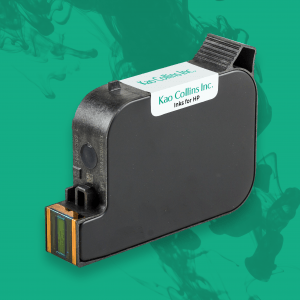
Kao Collins produces inks for HP 45 systems packaged in genuine new OEM cartridges.
HP is a significant player in TIJ technology, offering reliable and easy-to-use printers. HP 45 si printers are widely used for coding, marking, and labeling applications across various industries.
HP’s commitment to quality and innovation ensures that thermal inkjet technology delivers consistent performance.
Funai
Funai is another major manufacturer in the TIJ market, known for producing high-quality printers for diverse industrial applications.
Funai printers are recognized for their robust performance and dependability, catering to the specific needs of industries like packaging, pharmaceuticals, and electronics.
Now we’ll look at the types of TIJ inks available, and why they are the ultimate problem solvers for industrial printing challenges.
A Wide Range of Inks Available
Whether HP or Funai, TIJ printers use two primary types of inks: water-based and solvent-based. Understanding the differences in these inks helps you select the right solution for your industrial printing needs, especially when working with different materials.
Water-Based Inks
Water-based TIJ inks are formulated for printing on porous materials, where the ink can be absorbed into the surface. They are easy to handle and have lower volatile organic compound (VOC) emissions, making them a more environmentally-friendly option. However, water-based inks are vulnerable to water damage, and may not be suitable for non-porous surfaces or applications where the ink is exposed to moisture.
Solvent-Based Inks
Solvent-based inks are ideal for TIJ printing on non-porous materials, such as plastics and metals, because the ink remains on the surface rather than being absorbed. These inks offer greater durability and resistance to water, making them suitable for challenging environments. Once dry, solvent inks are waterproof and provide strong adhesion.
In the following sections, we’ll explore these benefits and examine how TIJ printing inks perform on different substrates and applications across various industries.
Everyday Benefits
Thermal inkjet technology ensures consistent printing performance and dependability. Its combination of efficiency and high-quality output makes it the go-to asset for any production line, offering consistent performance and streamlined operations.
Cost Effective
TIJ printing delivers notable cost savings through its standardized print cartridges. These cartridges streamline inventory management and maintenance, lowering overall ownership costs. This cost efficiency makes TIJ an attractive option for businesses with high-volume printing requirements because it reduces operational expenses while maintaining high-quality output.
|
Reduced Cartridge Costs. Standardized cartridges mean you only need to stock a few types, lowering the cost of maintaining a large inventory of different cartridges. |
|
| Lower Maintenance Expenses. TIJ printers require less maintenance with easy-to-replace cartridges. This simplicity reduces repair and service costs, whereas CIJ printers can have higher maintenance needs due to their complex ink systems and frequent cleaning requirements. Piezoelectric systems also involve more intricate maintenance due to their precise components, leading to potentially higher service expenses.; | |
| Decreased Downtime. Quick and straightforward cartridge changes in TIJ technology minimize production interruptions. CIJ and piezo technologies may experience longer downtime during maintenance, affecting overall productivity and increasing operational costs. | |
|
Increased Longevity. Known for durability, TIJ printers reduce the frequency of replacements compared to other printing technologies. This longevity contributes to a lower cost of ownership. |
|
|
Efficient Ink Usage. TIJ technology is designed to maximize ink usage, reduce waste, and lower the cost per print. With precise ink delivery, you get more prints per cartridge, reducing operating expenses. |
Overall, TIJ technology’s lower maintenance requirements and cost-efficient features make it a standout choice for businesses seeking to optimize their printing processes compared to CIJ and piezoelectric systems.
Words of Caution
Thermal inkjet technology offers significant long-term benefits. Using inferior inks and refurbished cartridges undermines the advantages of TIJ technology and inevitably leads to several issues.
It’s important to be cautious and consider the disadvantages of low-cost, low-quality inks and refurbished or remanufactured cartridges.
- Compromised Print Quality. Low-quality inks may result in poor print resolution, inconsistent color output, and increased smudging. This can diminish the clarity and professionalism of your printed materials, negating the high-resolution benefits that TIJ technology offers.
- Increased Downtime. Refurbished or remanufactured cartridges might not meet the same reliability standards as new, genuine cartridges. This can lead to more frequent cartridge failures, causing unexpected downtime and disrupting your production line.
- Higher Long-Term Costs. While low-cost inks and refurbished cartridges may seem like a good deal, beware of the hidden costs. Issues such as clogging, leakage, or poor adhesion can result in higher ink consumption and additional maintenance.
To fully realize TIJ technology’s cost benefits and performance advantages, it is essential to use high-quality, genuine inks and cartridges. This ensures that you maintain optimal print quality, reliability, and cost-effectiveness throughout the lifespan of your printing equipment.
“While thermal inkjet technology offers significant cost savings and efficiency, it’s essential to use high-quality, genuine inks to fully realize these benefits. Inferior inks can compromise print quality and lead to increased downtime,” warned Ms. Adams at Kao Collins.
Many Industries Print Using Thermal Inkjet
Thermal inkjet (TIJ) technology is the go-to choice for industries that need flexibility and consistent, high-quality results. It adapts various applications, from precise labeling to high-resolution coding.
Food and Beverage PackagingIn the food and beverage industry, TIJ technology ensures product integrity and compliance. It is widely used for printing essential variable data information such as expiration dates, batch numbers, serial numbers, and nutritional information on packaging. TIJ printers’ high-resolution output ensures that labels are clear and legible, which is vital for consumer safety and regulatory adherence. |
|
PharmaceuticalThe pharmaceutical sector relies on TIJ printing for accurate and reliable product marking. Manufacturers must print critical details like dosage instructions, manufacturing dates, and serial numbers on drug packaging. This precision helps maintain product traceability and meet stringent industry regulations such as DSCSA, (FDA’s Drug Supply Chain Security Act). |
|
Health and BeautyIn the health and beauty industry, TIJ printing is used to label personal care products with essential information such as ingredients, usage instructions, and branding. The high-quality prints produced by TIJ technology enhance product presentation and ensure that necessary details are conveyed effectively to consumers. |
|
ElectronicsTIJ technology is integral to the electronics industry for marking components and devices with barcodes, serial numbers, and other identification. The reliability of TIJ printers in producing sharp and durable prints ensures compliance with regulations for tracking electronic products throughout the product lifecycle. |
|
Direct MailFor direct mail campaigns, TIJ printers offer a cost-effective solution for variable data printing. They are used to personalize mail pieces with names, addresses, and other tailored content. The flexibility and high resolution of TIJ printing contribute to the effectiveness of targeted marketing efforts. |
|
Medical Products and DevicesTIJ printing plays a role in meeting global medical Unique Device Identification (UDI) requirements. It ensures accurate and clear labeling of medical devices, equipment, and supplies by printing essential details such as barcodes, expiration dates, and other critical information. TIJ printing supports compliance and operational efficiency in the healthcare sector. |
|
Logistics and TransportationTIJ technology is essential for logistics and transportation, where it ensures the production of precise, scannable barcodes for shipping labels, tracking codes, and handling instructions. The reliability of TIJ prints is critical in preventing barcode scanning failures that could lead to chargebacks and operational disruptions. TIJ printing technology adapts to various business sectors’ demands to produce high-quality, reliable prints, making it indispensable for businesses aiming to improve operational efficiency. |
TIJ Printing Applications Support Every Industry
TIJ technology is a versatile problem-solver for various applications across different industry sectors. The all-in-one printhead and ink system simplifies printing, offering an integrated, cost-effective solution that combines high-quality output with minimal maintenance.
“At Kao Collins, we see thermal inkjet as more than just a printing technology. It’s a comprehensive solution that addresses the diverse challenges faced by modern industries, said [Name, [Title if new name].”
TIJ’s ability to handle various substrates with minimal maintenance and ease of use makes it indispensable for industries such as food and beverage, pharmaceuticals, cosmetics, electronics, and logistics.
Marking and Coding
TIJ technology is widely used for product identification, including printing barcodes, batch numbers, and expiration dates. Its high-resolution impressions ensure that information is clear and scannable. Industries such as food and beverage, pharmaceuticals, cosmetics, and electronics rely on TIJ for its precision and reliability in marking and coding, ensuring that every product is correctly identified and tracked.
Wide-Format Printing
TIJ technology delivers exceptional quality for large-scale graphics, posters, and signage. Its high resolution and vibrant colors make it ideal for advertising, retail displays, and architectural design projects. TIJ printers can handle wide-format printing tasks efficiently, providing sharp and detailed images that enhance visual impact and draw attention. Whether it’s for eye-catching retail posters or detailed architectural plans, TIJ printing meets the demands of high-quality large-format applications.
Packaging and Labeling
TIJ printers process variable data printing for packaging materials. They can print labels, flexible packaging, and cartons with consistent quality. It provides flexibility for industries that require customized packaging solutions, such as food and beverage, pharmaceuticals, and consumer goods. Printing variable data quickly and accurately streamlines allows companies to adapt swiftly to changing market demands and regulatory requirements.
Addressing
TIJ technology simplifies mail sorting and labeling processes by providing a reliable method for printing addresses and postage information. This application is particularly useful for direct mail campaigns and bulk mailing operations, where efficiency and accuracy are paramount. TIJ printers produce clear, legible text that reduces the risk of misdelivery and improves overall mailing efficiency, making them a vital tool for companies that rely on effective customer communication.
Reliable Printing on All Material Types
Across multiple industries, the adaptability of TIJ helps printers deliver reliable and high-quality results for various applications.
TIJ technology effectively applies water-based inks for porous materials like paper and cardboard, ensuring vibrant, crisp prints on these surfaces.
TIJ employs solvent-based inks for non-porous materials such as plastics, metals, and glass, which offer strong adhesion and durability, maintaining print clarity and integrity on these challenging surfaces. This choice of ink ensures that TIJ can handle diverse printing needs with consistent, high-quality performance.
Primary Substrates Printed with Thermal Inkjet Inks
Paper and Cardboard
For paper and cardboard, TIJ technology utilizes water-based inks. These inks are ideal for porous surfaces, ensuring vibrant colors and crisp details for document printing, packaging labels, and cardboard boxes. Water-based formulations provide excellent print quality and ease of use on these materials.
Plastic
TIJ technology uses solvent-based inks on plastic materials such as polyethylene (PE), polypropylene (PP), and PET. These inks are designed to adhere to non-porous surfaces, offering strong adhesion and durability for applications like flexible packaging, shrink sleeves, and plastic containers. Solvent-based inks ensure that the prints remain intact and legible over time.
Metal
TIJ printers rely on solvent-based inks for metal surfaces, including aluminum, steel, and tin. These formulations provide robust adhesion and resistance to various environmental factors, making them suitable for marking metal cans, automotive parts, and industrial components. The durability of solvent-based inks ensures that the prints withstand harsh conditions.
Glass
TIJ technology prints on glass surfaces using solvent-based inks. These inks deliver clear, high-quality prints on glass bottles, windows, and decorative glassware. The ability of solvent-based inks to adhere well to non-porous glass surfaces ensures sharp and long-lasting results.
Wood and Lumber
TIJ technology uses hybrid inks that combine dyes and pigments in a water-based formulation for wood surfaces. This versatility ensures good ink density for lumber, wooden packaging, signage, and furniture applications.
Waterproof Paper (e.g., Tyvek)
TIJ technology excels at printing on waterproof paper like Tyvek® using specialized inks designed for durability and clarity. These inks ensure vibrant, crisp prints that resist water, making them ideal for applications such as outdoor signage, wristbands, tags, and protective covers. The ability to print on waterproof paper expands the versatility of TIJ technology, providing reliable solutions for challenging environmental conditions.
Search for more substrates compatible with TIJ inks
OEM Solutions
OEMs specializing in engineering and designing TIJ printing systems are important in advancing industrial printing technology. These companies leverage their expertise in creating sophisticated printing equipment tailored to various industrial needs.
They often partner with ink manufacturers like Kao Collins to provide a comprehensive solution.
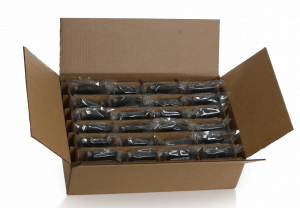
Kao Collins supplies white-label inks specifically formulated to work with these OEM-designed systems.
This collaboration ensures that OEMs can offer complete end-to-end solutions, integrating advanced hardware and high-quality consumables.
By combining their engineering skills with Kao Collins’ expertise in ink formulation, OEMs deliver reliable and efficient printing systems that meet diverse industry requirements, providing a streamlined and effective solution for end-users.
Streamline Production with TIJ’s Adaptability
Thermal inkjet (TIJ) technology is an adaptable, efficient, and cost-effective solution for industrial printing needs. The range of inks available makes printing on various substrates possible. TIJ can handle porous and non-porous materials with precision, making it a valuable tool across multiple sectors, including food and beverage, pharmaceuticals, electronics, and logistics.
“At Kao Collins, we believe that innovation is key to success. By continuously advancing our thermal inkjet solutions, we are committed to helping our customers achieve their goals and push the boundaries of what’s possible in industrial printing, [Name] said.”
The technology’s cost-effectiveness, characterized by standardized print cartridges and reduced maintenance requirements, adds further value, ensuring lower operational expenses and enhanced productivity when using high-quality inks in new cartridges.
Low-quality inks in refurbished cartridges put high-performance equipment at risk.
Its broad applicability and consistent results make it an indispensable asset for modern production environments.
Contact Kao Collins to order high-quality TIJ inks for solving printing challenges.
Frequently Asked Questions
Thermal inkjet printing is cost-effective because of the standardized cartridges that reduce inventory costs, lower maintenance expenses, decrease downtime, and create ink usage efficiencies. This contrasts with more complex systems like CIJ and piezoelectric systems, which often involve higher maintenance and operational costs.
TIJ technology is widely used in food and beverage packaging, pharmaceuticals, health and beauty products, direct mail, medical products, and logistics for applications such as labeling, coding and marking.
Choose water-based inks for porous materials and environmentally friendly applications. Opt for solvent-based inks for non-porous surfaces and situations requiring greater durability and resistance to moisture.
Using high-quality inks ensures optimal print quality, reliability, and performance, maximizing the cost benefits and extending the lifespan of the thermal inkjet printing equipment.
OEMs design and engineer TIJ printing systems and often partner with ink manufacturers like Kao Collins to provide complete, high-quality solutions that integrate advanced hardware with compatible inks.
TIJ technology improves production efficiency through reduced downtime from quick cartridge changes, consistent print quality, and lower maintenance needs compared to other printing technologies.
Low-quality or refurbished cartridges can compromise print quality, increase downtime due to failures, and lead to higher long-term costs due to issues like clogging or leakage.



